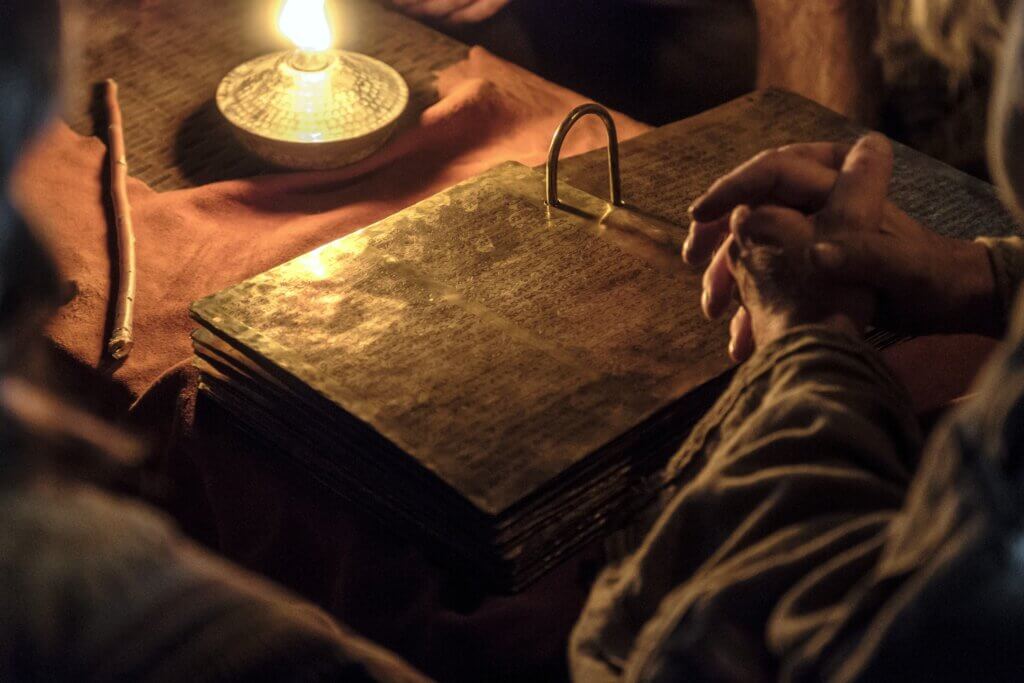Although the scriptures inform us that there exist sacred records containing greater revelations from God than those we have currently—that God is withholding them because of our unbelief (Ether 4:13–14; cf. 2 Nephi 32:7; 3 Nephi 26:8–11)—has anyone asked, “Unbelief in what?” or voiced excitement at the prospect of becoming worthy to receive those “greater things?”
Rather, isn’t the norm that if one openly entertains such things he is immediately batted down because that marks him as “fringe.” Don’t scriptural patterns nevertheless show that it was typically God’s fringe—whose zeal for his Word marked them as “different”—who turned out to be a righteous remnant of his people in any situation of his judgments coming upon them?
Entirely passing over the scriptural requirements for such records to come forth, many declare categorically, “The prophet will do that!” Didn’t the Lord plainly reveal, however, what those requirements are—that if we believe the lesser part of what he taught the people which we have currently, to try our faith, then will the greater things be made manifest (3 Nephi 26:8–9)?
But even in that case, Moroni predicts, those same objectors will “contend against the word of the Lord” when it comes forth. Rejecting those greater revelations, they will end up “accursed” (Ether 4:8). Indeed, how long will “precepts of men” continue to prevail over “the truth of God,” ultimately causing many to “deny” the Lord God of Hosts (2 Nephi 28:26–32)?
So touchy, in fact, has today’s climate of societal rhetoric become that mere disagreements in matters of truth are now dubbed “hate speech,” “verbal abuse,” or “conspiracy theories”—even though prophecies contained in the current “lesser portion” of God’s Word keep being verified, and events once called conspiracy theories have turned into realities for all to see.
King Limhi’s scouts, not a prophet, discovered the twenty-four plates of Ether. Predicting their end-time rediscovery, Moroni tells us that “whoso findeth them, the same will have power that he may get the full account”—including the “greater things” (Ether 1:4; 4:4–8). If not by Urim, which are predicted to reappear in that day, how indeed shall they be “found”?
Says Nephi, “Also others who have been, to them hath he shown all things, and they have written them; and they are sealed up to come forth in their purity, according to the truth which is in the Lamb, in the own due time of the Lord, unto the house of Israel” (1 Nephi 14:26). That suggests an end-time scenario of many records coming forth that convince “the house of Israel.”
Isaiah’s word links identify his book as a “sealed book”—written “for the end-time”—that is unsealed to the lowly rather than the wise and learned (Isaiah 29:11–14, 18; 30:8). It too contains “great” or greater things (3 Nephi 23:1). And if Isaiah’s isn’t a sealed book, you be the judge, as without the literary tools the Isaiah Institute provides who can truly understand it?
The proof will be when those who understand the greater things Isaiah’s words contain (1) have sufficiently believed them in order for the Lord to release the additional promised records; (2) receive the greater things that come forth which those records contain; (3) discover that they mirror the same truths we learn from Isaiah; and (4) grieve at how others will reject both.












